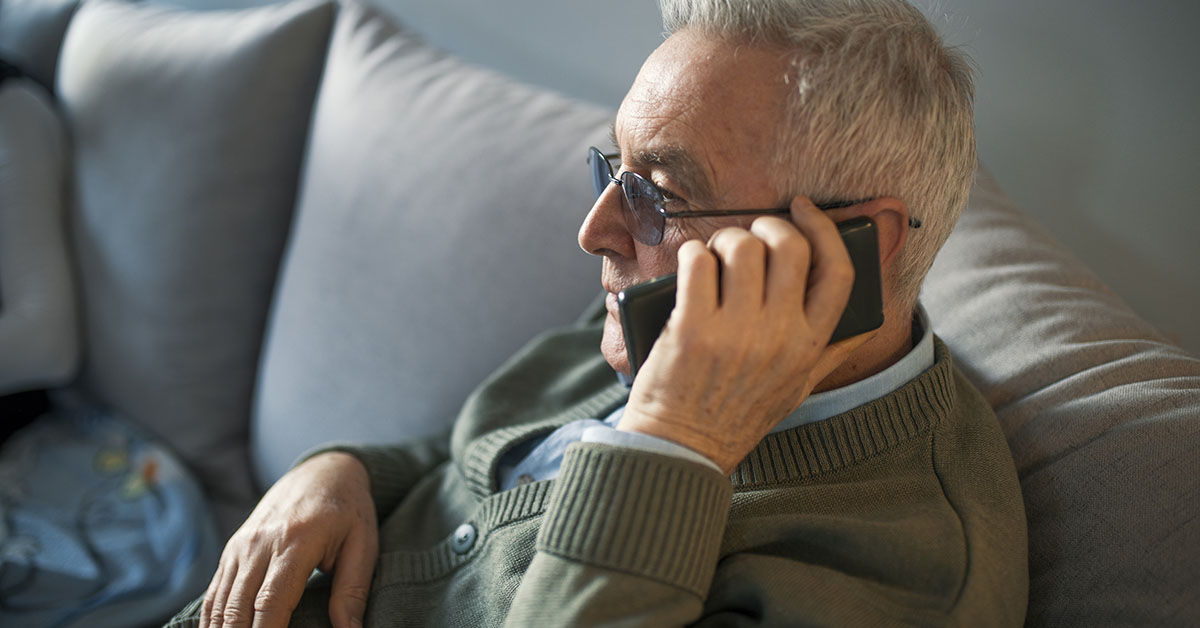
Tips For Telling People You Have Cancer
-
Finding out you have cancer is hard, but telling the ones you love can be even harder.
The truth is, there’s no instruction manual for sharing difficult news like a cancer diagnosis. But there are some strategies that can make the conversation easier.
First, take some time to decide who you’d like to share the news with—and how much detail you want to include. The answer doesn’t have to be one-size-fits-all. It may help to think of your social connections as concentric circles and choose a different approach for each. For example, you might share everything with your close friends and family but keep things vague with co-workers or acquaintances.
The advice below can help you choose your approach to each group—and decide what to say when you don’t want to talk about your diagnosis.
Sharing with your inner circle
Conversations with your partner, children, or other close family members and friends call for plenty of time and privacy.
There’s no right or wrong way to break the news, but it may help to:
- Tell them in advance that what you need to talk about is very important.
- Taking some time to think about what you want to say,
- Anticipate the questions your loved ones might ask and how you’ll respond.
Your loved one will likely be shocked by the news. And their reaction might be unexpected. Everyone responds to bad news in their own way. Some offer support right away, while others need some time to process.
Even if you’re worried about making your loved one upset or scared, resist the urge to put on a happy face for the sake of protecting them. It’s normal and OK to be emotional. And being honest about how you feel is better for everyone.
Sharing your emotions—and asking your loved ones about theirs—can let you work through them together. But remember, it’s also OK to say you aren’t ready to talk about something yet. You don’t have to cover everything in one conversation.
You don’t need to share all the news alone either. If describing the details of your diagnosis or treatment plan feels overwhelming, you can ask your care team to help explain any complex or technical details. If you worry that a loved one might become more upset than you and you won’t be able to comfort them, a social worker or counselor can serve as a mediator as well.
Sharing with everyone else
When you share with your wider circle, you might choose to communicate with several people at once. You could do that in person, via email or text, or through a “spokesperson”—a friend or family member you ask to act as press secretary and dispense information to a list of extended family, friends, and others in your community.
You might also use a website or social media channel to share updates with a wider group. Pay close attention to any privacy settings—and remember that information may spread further than you’d planned.
Before you let your larger circle know about your diagnosis, decide how much you want to share—and what topics are off-limits. Come up with a response to unwanted questions ahead of time. You might say something as simple as “Thanks for asking, but I’d rather not talk about it right now.”
On the other hand, if you do feel an urge to talk, go ahead. For many people, sharing the news makes it real—and helps them process and accept it. It also gives your community the opportunity to support you.
If you need additional tips for talking about your diagnosis to others, don’t be afraid to reach out to your care team for support. At Fox Chase, your team is here to offer support at every step of your journey. And our social workers and psychologists specialize in helping people with cancer—and their loved ones—cope with their condition. Call 888-369-2427 or request an appointment online.
